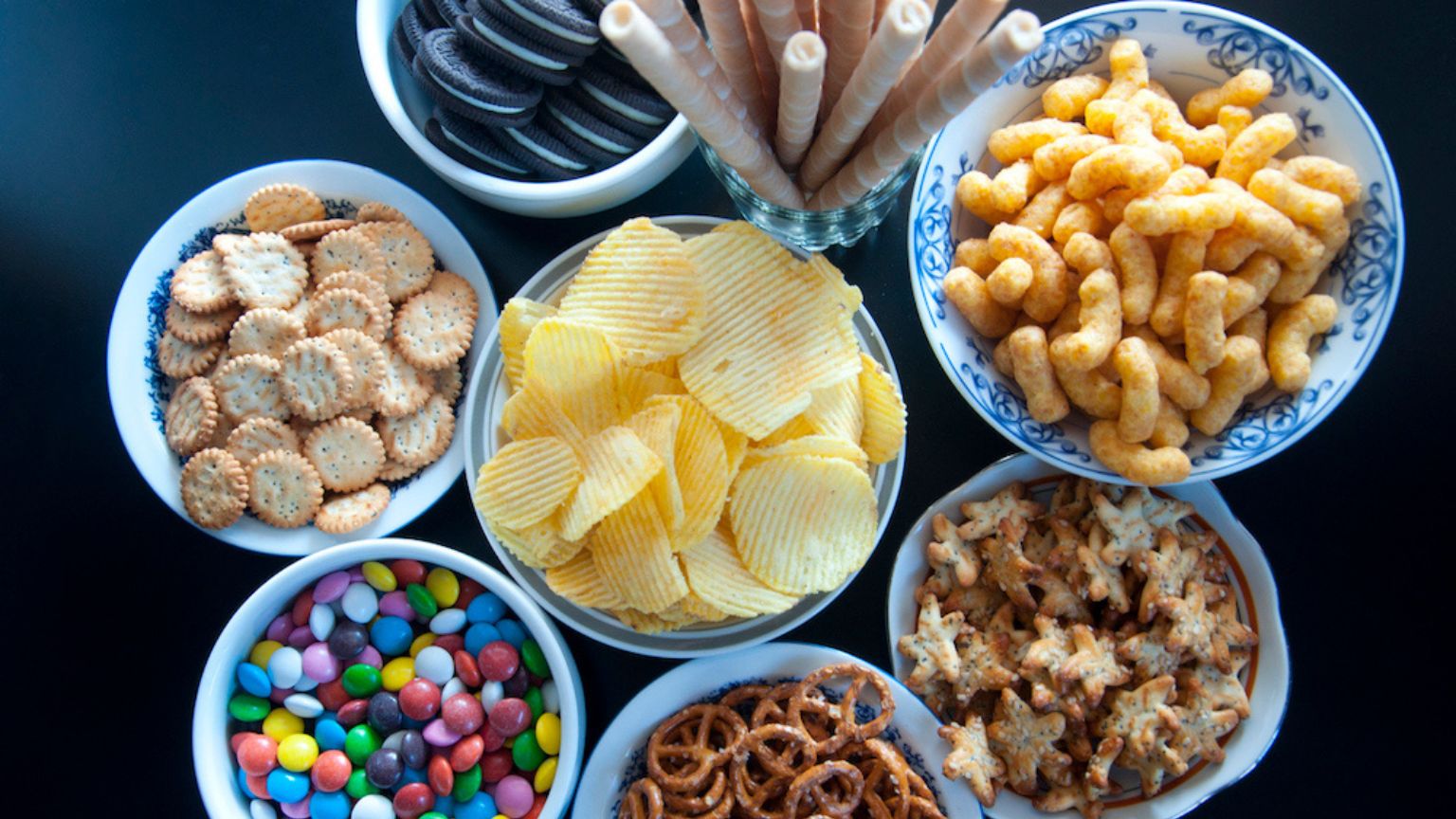What are Ultra Processed Foods? How do we spot them and how can we avoid them? Healthista spoke to Menopause Nutritionist from Menopause Brand Issviva Charlotte Hunter, who explains everything we need to know
Processed foods, often mistaken for usual suspects like hotdogs and French fries, are something we’ve heard about for years. However, there’s a new kid on the block: Ultra Processed Foods (UPFs).
UPFs are products carefully crafted by the food industry for maximum convenience. Think of everyday items like breakfast cereals, commercial bread, snacks, and newer trends like vegan convenience foods.
These foods prioritise ease – they’re quick to buy, cook, or consume. They may come in plastic trays, tubs, pouches, packets, or cardboard boxes.
a 2019 study revealed that 57 per cent of the UK’s daily calories stem from UPFs
A simple rule of thumb: if a food has unfamiliar ingredients or things you wouldn’t usually use in your kitchen, it’s likely a UPF.
Nutritional advice can be puzzling at the best of times, and UPFs almost feel like a step too far, but bear with me because learning about these foods and their impact on your health is mind-blowing.
In fact, a 2019 study revealed that 57 per cent of the UK’s daily calories stem from UPFs, a higher percentage among children. In addition, a 2022 study placed UPF consumption in the US at a staggering 72 per cent.
READ MORE: 8 lifestyle changes that can help prevent cancer
The adverse effects of UPFs go beyond just their nutritional profile; something deeper is at play. These foods are typically engineered from refined ingredients like vegetable oils, flour, protein powders, starches, or sugars. They are often enhanced with additives such as preservatives, flavourings, colourings, stabilisers, and emulsifiers.
Suppose we ignore these statistics and messages about the foods we eat. In that case, we risk being trapped in a perpetual cycle of junk food consumption. Surprisingly, it’s often the foods we perceive as healthy that can pose the most problems.
But why? Maybe because of the simple fact that we’re consciously eating more in a misguided attempt to eat healthily. This could be true for foods like yoghurts, cereals, smoothies, granola, and plant-based alternatives.
They are often enhanced with additives such as preservatives, flavourings, colourings, stabilisers, and emulsifiers
Consider this example: a wholemeal bagel with low-fat cream cheese, smoked salmon, and an oat milk latte. It used to be seen as a healthy start to the day, but now it’s considered a prime example of UPFs.
Similarly, a bowl of granola with almond milk or pancakes topped with fruit yoghurt and compote. What happened? Well, the foods around us are being increasingly modified and processed almost beyond recognition in some cases.
How do you solve a problem like Ultra Processed Foods?
Overall, we must take UPFs seriously as they have been associated with chronic conditions such as diabetes, cardiovascular disease, digestive conditions, obesity, depression, anxiety, and cancer.
As hormones fluctuate from perimenopause and beyond, our sensitivity to carbohydrates falls
Specifically, during menopause, when we are physiologically and psychologically vulnerable to the effects of a bad diet, we should pay close attention to the foods we’re eating.
As hormones fluctuate from perimenopause and beyond, our sensitivity to carbohydrates falls and our ability to regulate glucose and insulin declines. This, coupled with a constellation of cardiometabolic risk factors, makes women particularly susceptible to the impact of UPFs.
UPFs can take various forms in everything from the usual fast-food culprits to your favourite ‘healthy’ brands, and they’re ubiquitous. It also requires more work to precisely define if and how processed foods are.
READ MORE: Brain food: 7 key nutrients for a healthier brain
So, the big question is..
How do we reduce or even steer clear of UFPs to protect our health?
- Prioritise whole foods in their natural state.
- Scrutinise labels; if you can’t pronounce an ingredient, consider it a red flag.
- Minimise packaging, especially with ready meals and snacks.
- Embrace home cooking; if you’re not an expert chef, invest in simple recipe books using simple, wholesome ingredients.
- Opt for snacks like fruit, vegetables, nuts, and seeds, avoiding pre-packaged convenience foods.
- Hydrate with water and herbal teas instead of fizzy drinks and sugary beverages.
- Strategically plan your snacks and meals to sidestep the temptation of convenience foods.
- Strive for a balanced approach, acknowledging that entirely avoiding all ultra-processed foods can be challenging. Be mindful and allow occasional indulgence.
- Don’t create bad habits trying to stick to the perfect diet; do your best to eat as unprocessed as possible.
Simple swaps
- Fruit-flavoured yoghurt – natural full-fat yoghurt
- Crisps – unsalted nuts or homemade baked crips
- Sugary cereals – unsweetened high-fibre cereals or porridge oats
- Sliced bread – wholegrain crips breads or oatcakes
- Flapjacks and cereal bars – nuts, seeds, and fruit
- Sausages or deli meats – cooked meats
- Fizzy drinks – sparkling water with fruit
- Squash – water and fruit teas.
Like this article? Sign up to our newsletter to get more articles like this delivered straight to your inbox.























































